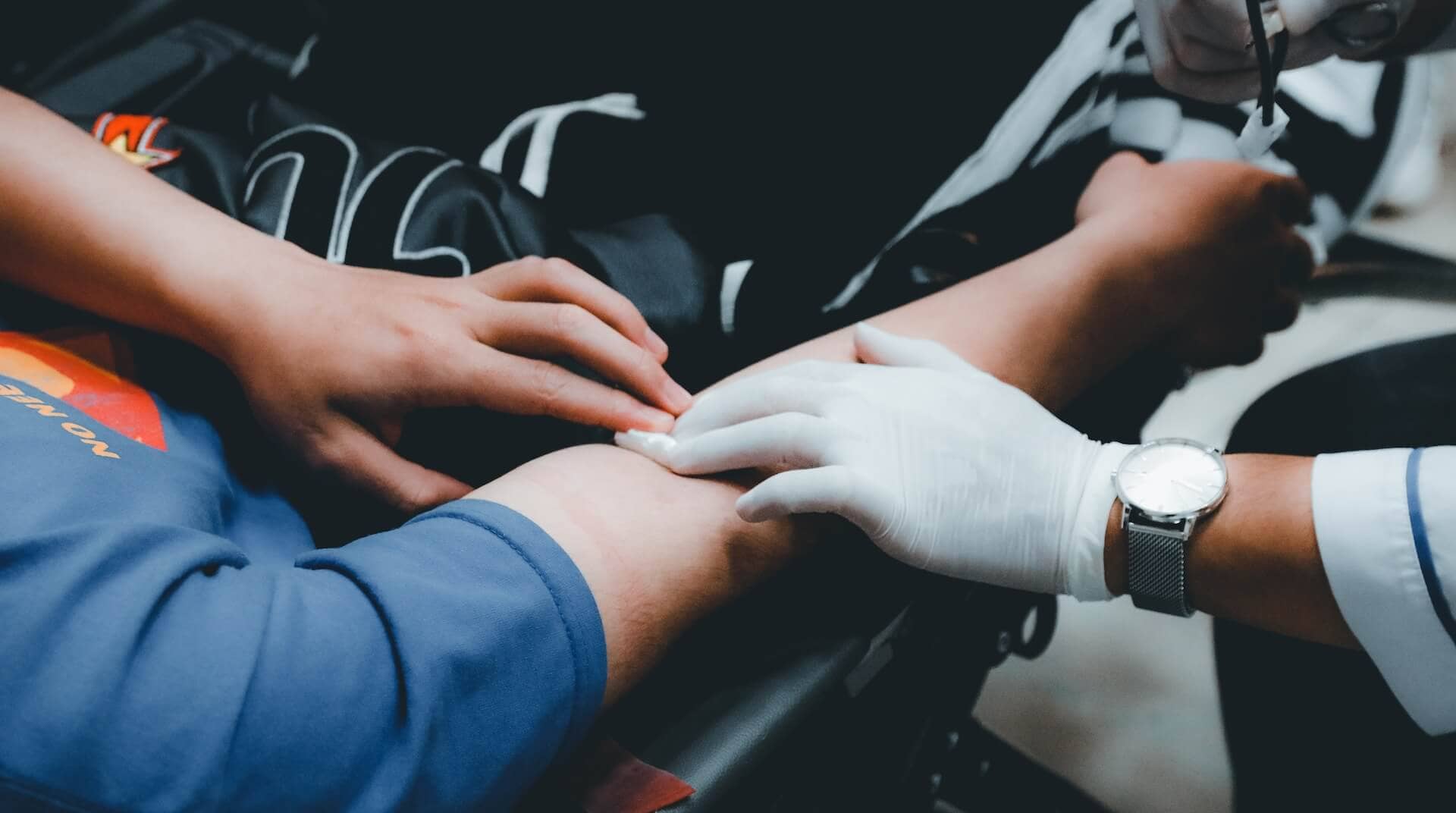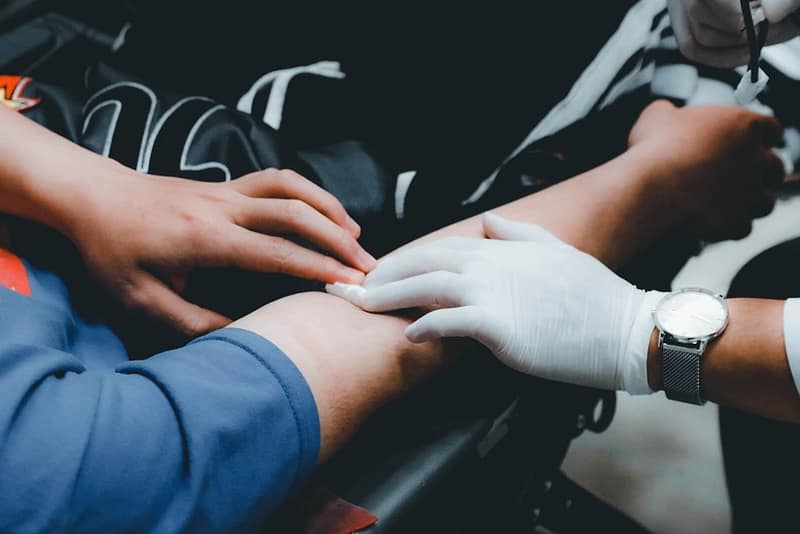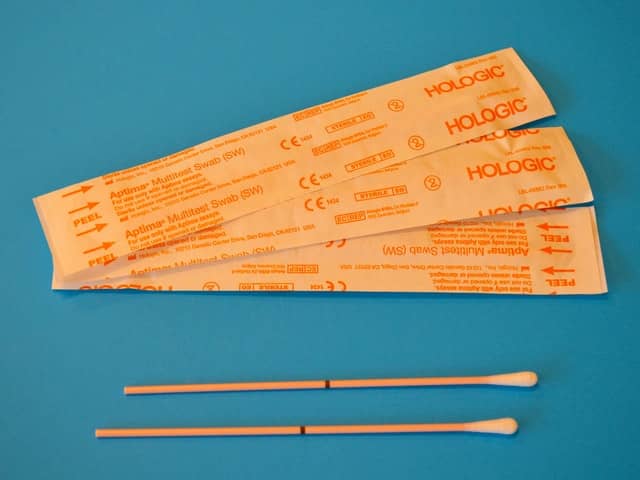Do they Test for STDs When Donating Blood?

Giving blood has a huge importance to the healthcare industry as it contributes towards the UK’s medical blood supply. Giving blood is something that we all should consider throughout our lives and is a contribution to the health of the UK as a society. One way of looking at it is that you are giving your own health to another person. It’s important therefore that the blood that you supply is screened for any possible transmittable diseases.
Blood-borne sexually transmitted diseases can be passed through blood donations if the person donating is not properly screened. You will be asked a number of relevant questions before you give your sample to assess the health of your blood. You may, however, have become infected outside of your knowledge. Your blood will be sampled for sexually transmitted diseases that may be unknown to you before its final, medical use.
Read on to find out how blood transfusions, if not adequately screened, can be a risk to people’s health by spreading STDs. But first, let’s talk about the donation process including screenings for STDs in the process.
What Happens When You Donate Blood?
There are 3 main procedures to know about when giving blood. They are:
- Getting registered
- Health assessment and short physical
- Your donation
Let’s assess these in more detail to see how they contribute to the assessment of your donation’s health.
Getting Registered
Blood donation is a voluntary procedure. You’ll only ever donate blood if you volunteer to do so. There are several services available here in the UK where you can donate, such as:
- The British Heart Foundation
- Give Blood with the NHS
- Location-specific services such as Scotblood, The Welsh Blood Service or the Northern Ireland Blood Transfusion Service
Once you have found a donation centre that is right for you, you will be given a date for a 10-15 minute appointment. When you attend your appointment, you will need to take a short health test and physical to help the nurse assess your donation.
Health Test and Short Physical
To suitably screen your blood, first, the physician will administer a Donor Health Check. This will be in the form of a few questions around the following topics:
- Health history – do you have any known infections that are transmittable by a blood transfusion?
- Travel history – to test for possible infection caused by mosquito bites, for example.
- Sexual health – have you had sex with someone who has had syphilis, hepatitis or anyone who is HIV positive? (if deemed relevant). This may also be a check of your current or previous sexual practices. For instance, if you have had anal sex with a new partner. If you have, you will not be able to donate. This is on par with common eligibility criteria.
It is vital that you mention any known STDs during your screening. You will not be able to donate if you have ever contracted any of the following STDs:
Your eligibility to donate blood is based on your responses to these questions about your known sexual health and practices. This process is in line with a scheme called ‘FAIR’. This scheme aims to filter out any possible contagion events caused by blood that contains transmissible disease over perceived prejudice. Its purpose is to include and exclude donations via medically standardised rules and procedures.
What Happens To My Blood After A Donation?
If you are deemed eligible for donation, your blood will be screened. This will be to see if any sexually transmitted diseases are contained in the blood. These STDs include:
This process takes a while to complete, as blood is tested for many different reasons. This period between the taking of the donation and the use of the donation varies from clinic to clinic. If an infection is found, the sample is destroyed. Some services offer you the chance to receive an SMS if your sample is used.
What If My Donation Contains An STD?
There is no standard or legal obligation to let you know if your donation contains an STD. However, if your sample contains a virus that imposes a significant risk to your life, they will let you know via a phone call.
Blood Tests And Your Sexual Health
While Your Sexual Health doesn’t take blood donations, we do offer a Blood Profile Test which will check for the 4 most dangerous diseases commonly transmitted through human blood. As you often won’t receive any information from the service that takes your blood donation with regards to your sexual health, it is therefore considered prudent to get tested before donation.
The Blood Profile Test is a safe, secure and discreet way to find any diseases in your blood, and it can be administered by you at home. This test has a 28 day window period. This is the period between exposure and when a test can detect the infection.
An Early Detection Blood Test has a window period of 10 days.



